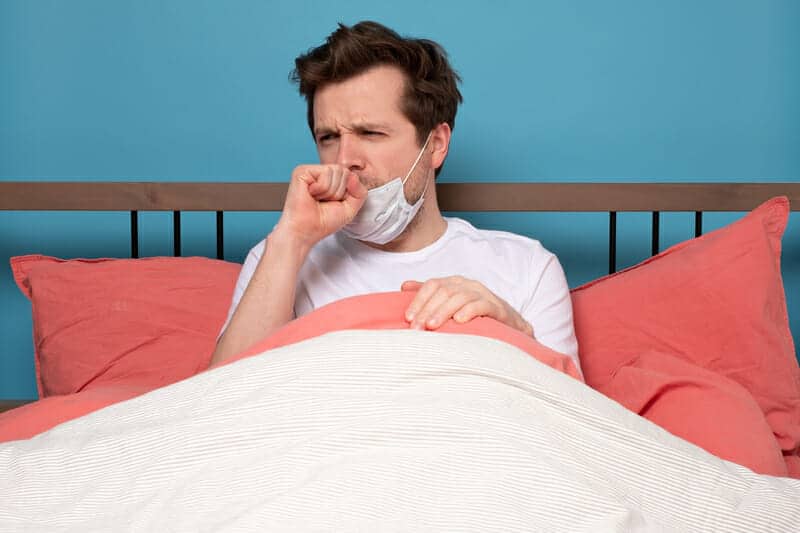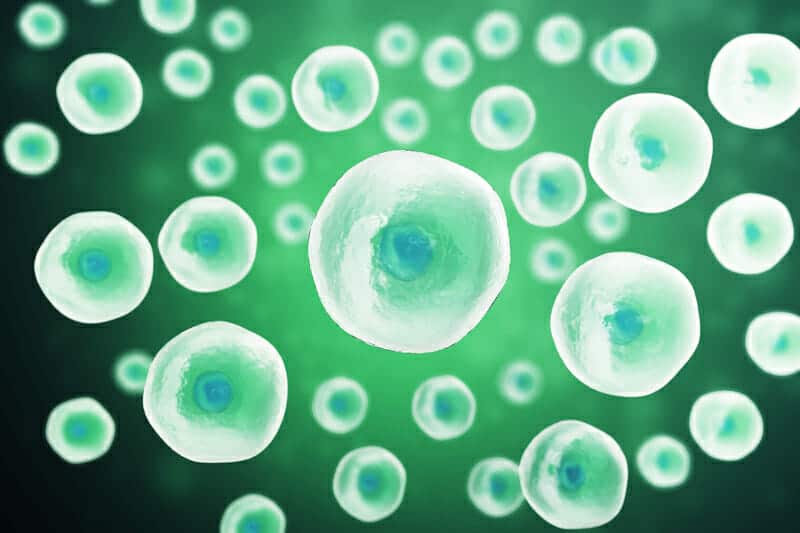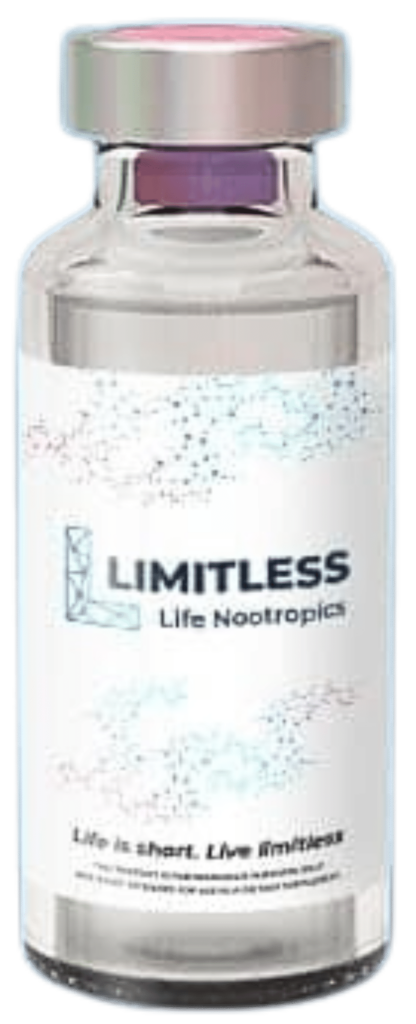In The TOT Bible, I outline numerous physical and mental health benefits of using therapeutic testosterone.
However, one area I failed to dive deep into was the connection between testosterone and the immune system.
As we come closer to the end of 2021, we now live in a world with engineered bioweapons and viral endemics.
Those who used the past ~2 years of the pandemic to train smart, eat cleaner, and improve their overall health have been greatly rewarded.
Those who let themselves go now find themselves exponentially behind the curve, having increased the likelihood of falling victim to age-related diseases.
Even scarier is how it’s not just the old people becoming frailer — younger adults have put themselves in a very dangerous position:
“[British Columbia, Canada] data collected during the pandemic suggest that young adults experienced significant impacts on health behaviours, including decreased exercise and fruit/ vegetable consumption, as well as increased alcohol and cannabis consumption.
Results from the BC SPEAK Survey showed that young adults 18-30 years old experienced negative changes in health behaviours due to the COVID-19 pandemic compared to the [British Columbia] population overall.
Compared to other age groups, a greater proportion of young adults reported decreased exercise for commuting (26% vs. 18%), less fruit and vegetable consumption (13% vs. 11%), and increased use of alcohol (33% vs. 27%) or cannabis (17% vs. 8%)”
So how can increasing one’s testosterone levels prime their immune system against disease, both known and unknown?
That’s what I intend to answer in this short yet detailed article.
Why I’m NOW Talking About Testosterone And The Immune System

The last time I truly talked about testosterone’s connection to immune function was in December 2016 when a reader asked me about it.
And here was my response:
To summarize the video:
“Can an optimal balance of hormones prevent certain age-related diseases? Absolutely.
For immunity we haven’t seen anything specific, but we’re almost certain healthy and less prone to disease in general when testosterone levels are within an optimal physiological range.
When you don’t feel healthy, you are more likely to get sick. Your own perception of your health has a HUGE role in the immune system.”
It wasn’t until I found this old saved article in my search history that I became intrigued by the topic.
And to nobody’s surprise, testosterone confers immunoprotection:
“…the male sex androgen, testosterone, has been a major target of investigation in autoimmune conditions. Studies have established that it has a protective role and that testosterone deficiency in men is associated with increased risk for autoimmune conditions that are typically prevalent in females.
A new study by the University of Gothenburg, Sweden indicates testosterone limits antibody producing B cell numbers in the spleen and prevents autoimmunity by reducing levels of B cell-activating factor (BAFF), an essential B-cell survival factor.
BAFF is required by splenic B cells to continue through the maturation process. Lowered BAFF levels result in B-cell development halting at an immature stage, and in this form they cannot produce antibodies.
Excessive BAFF levels have been implicated in autoimmunity, as they allow the survival of autoreactive B cells. These cells recognise and target host tissue and produce autoantibodies that attack and damage tissues.”
“Preventing autoimmunity” initially sounds like a bad thing to the uneducated reader.
But to expand upon the last part of the quote, here’s what happens with autoimmunity:
“A healthy immune system defends the body against disease and infection. But if the immune system malfunctions, it mistakenly attacks healthy cells, tissues, and organs. Called autoimmune disease, these attacks can affect any part of the body, weakening bodily function and even turning life-threatening.
Scientists know about more than 80 autoimmune diseases. Some are well known, such as type 1 diabetes, multiple sclerosis, lupus, and rheumatoid arthritis, while others are rare and difficult to diagnose. With unusual autoimmune diseases, patients may suffer years before getting a proper diagnosis. Most of these diseases have no cure. Some require lifelong treatment to ease symptoms.”
And to provide my more science-educated readers with the details they’re looking for:
“Autoimmunity is the presence of antibodies (which are made by B lymphocytes) and T lymphocytes directed against normal components of a person (autoantigens). These components are called autoantigens or self-antigens and typically consist of proteins (or proteins complexed to nucleic acids). The antibodies and T lymphocytes that recognize autoantigens are called “autoantibodies” and “autoreactive T cells“.
…Autoimmune diseases develop when the auto-reactive B lymphocytes (autoantibodies) and T lymphocytes described above cause a pathological and/or functional damage to the organ/tissue containing the target autoantigen(s). Thus, in autoimmune diseases the auto-reactive lymphocytes are the actual cause of the disease, rather than a harmless accompaniment.
In autoimmune diseases, auto-reactive lymphocytes expand polyclonally because the mechanisms that normally keep them at bay fail. In other words, autoimmune diseases can be considered a manifestation of immune dysregulation.”
Let’s go back to the old article I dug up and see the end results of the quoted study published in 2018:
“The study, published in Nature Communications, used mouse models to study how testosterone modulates splenic B cell numbers and BAFF levels. They discovered that mimicking a testosterone deficiency in male mice by deleting their testosterone androgen receptor (AR) resulted in 1.8 times the number of mature B cells in their spleen when compared to their control littermates.
Similarly, BAFF levels in mice with deleted ARs were observed to be higher than the controls. When the researchers tested the serum BAFF levels of both testosterone-deficient males (hypogonadal) and those with normal levels (eugonadal) to establish if BAFF elevation followed the same pattern in humans, they found that all hypogonadal men had significantly higher circulating BAFF levels than their eugonadal counterparts.”
At a minimum, we have one confirmed mechanism through which testosterone optimization therapy improves longevity.
The Role Of Testosterone In Immunity

If you want the Cliff Notes on how testosterone affects your immune system, this is what you MUST know:
“When levels are low, we can see an increase in the production of T-cells. This may lead to certain autoimmune diseases if left unchecked. Many different autoimmune conditions such as rheumatoid arthritis and lupus have been linked to low levels of testosterone and DHEA in both men and women.
The balance between testosterone and estrogen is also important. Testosterone is often broken down into estrogen. When testosterone levels are low and estrogen levels are high, this could be because the body is converting testosterone too fast. This will make it more likely to produce an inflammatory state in the body. Raising testosterone or DHEA levels will often bring inflammatory markers down”
Despite what should be a no-brainer conclusion to anybody who isn’t bought and paid for by the sick care industry, many people are under the false impression that lowering testosterone levels improves immunity.
One major source of this misunderstanding comes from a 2013 study published in the Proceedings of the National Academy of Sciences, where readers falsely concluded that higher-testosterone men have weaker immune systems.
Here’s what happened in the study:
“the study measured the boost in protective antibodies following vaccination against influenza. Researchers found men with relatively high amounts of testosterone seemed to have a weaker immune response following vaccination than women and men with lower testosterone levels.”
“When researchers looked at testosterone levels in their male research subjects, they found those with higher levels of testosterone had gene clusters linked to lower levels of antibodies after vaccination. Higher testosterone levels appeared to result in more gene expression. Those types of genes, when activated, tend to speed up the process of cells in suppressing immune response.”
“The study was based on an analysis of samples from 53 women and 34 men who have been getting blood drawn before and after yearly flu vaccination since 2008… on average, women had significantly stronger antibody responses to the flu vaccine. The body produces antibodies to fight disease. The analysis also found that in men, increased activity of a set of genes that tend to turn on and off at the same time was linked to a weakened immune response to the flu vaccine.”
But this finding greatly published the researchers themselves.
Given what we know about the importance of testosterone in enhancing memory, lowering inflammation, and improving overall body composition, and so much more, why would this essential male hormone be designed to sabotage our immunity?
It turns out there’s more than meets the eye, according to the senior author of the study:
“One theory, Davis said is that having a suppressed immune system can actually protect men from some health threats. For example, an over-reaction to strains of flu, dengue fever and other diseases can be deadlier than the virus itself.
In the past, researchers have found that women tend to have lower rates of bacterial, viral, parasitic and fungal infections than men. Generally, women have “more robust immune responses,” the study’s authors noted. Yet that more robust response can lead to problems such as a higher risk for autoimmune diseases such as rheumatoid arthritis and lupus. Women are also twice as likely as men to die from sepsis.”
So what’s really going on here?
If you read ALL of the literature about testosterone and immunity, you discover just how complex the immune system is:
“Many of the studies that describe the suppressing effect of testosterone on the immune system have focused on a single immune function or individual immune cell types. But the immune system is a complex arrangement of many different cells, organs and tissues that direct an elaborate response to infections.”
“A trade-off may also happen between different immune actions. When one part is highly effective, other functions may be turned down. In a normal situation, the ability to produce a quick response to local infection or tissue injury by activating the innate immune system is more useful in high-testosterone men.
This is because, from an evolutionary perspective, they are more likely to experience trauma as a result of aggressive physical competition, roles in hunting and heavy manual or dangerous activities. So it’s not likely that testosterone would reduce all parts of immune function equally.”
Studying the connection between testosterone and immunity to reach a clear-cut conclusion would require much more evidence than what we have right now:
“To find out how it influences the immune system, it would be necessary to look at testosterone effects on various functions of both innate and adaptive immunity in a variety of men with different health statuses and ages. Such investigations don’t exist at the moment. So for now, it would be wise to conclude that testosterone can modulate the immune system.”
You get mixed results showing that testosterone can either strengthen the immune system, suppress it, or have no effect at all — depending entirely on which perspective you take.
Fundamentally, the problem is “most studies either focus on a few indicators of immunity, are confounded by phenotypic correlation, or are observational” (Source).
This is on top of the failure to consider how testosterone is just ONE part of the human body’s total immune system response.
At the very least, we know that blindly believing in testosterone suppression to improve immunity is unsupported by the evidence.
Testosterone And COVID-19: A Puzzle Unsolved?

I want to conclude this article with some interesting data collected during the course of the COVID-19 pandemic on testosterone levels.
(BTW — I have an entire catalog of articles written about the pandemic to show you how we guessed 99% of the global situation correctly in its infancy, and how the information STILL holds up in the current climate)
If you look at the total body of literature available for early treatments, one emerging area of research is the use of antiandrogens — in particular, Proxalutamide appears to be the one with the most promise for reducing hospitalizations and deaths.
But using drugs to lower a male COVID-19 patient’s testosterone levels appears to fly in the face of what we now know is an obvious conclusion.
One of the sure-fire mechanisms of COVID-19 we knew about early on was the cytokine storm:
“SARS-CoV-2 trigger’s the human body into producing vast amounts of cytokines, chemicals which flood to the site of infection and begin fighting the pathogen. They can also signal to the body to send more immune cells to mount a defence against a foreign invader.
It is a key part of healing in humans but a common issue for patients diagnosed with COVID-19 is their immune system responds too aggressively.
This can lead to this process getting out of control as it tries to defeat the invading pathogen. It leads to an enormous immune response called a cytokine storm. This is a hyperinflammatory condition itself and can lead to severe lung damage, acute respiratory distress syndrome (ARDS) and death.”
A preprint study that came out in May 2020 (and got formally accepted for publication after peer review in June 2021) was arguably our first hint that low testosterone levels were a major biomarker for severe COVID-19:
“We detected that the vast majority of male COVID-19 patients present low testosterone (68.6%) and low dihydrotestosterone (48.6%) levels. In contrast, most female COVID-19 patients have elevated testosterone levels (60%) without alterations in dihydrotestosterone levels. Both, female and male COVID-19 patients may present elevated estradiol levels (45.7% in males and 40% in females).
Disease severity defined by SOFA score correlates with elevated cytokine responses (e.g. IL-6) in males and IL-2 in females. In male COVID-19 patients, testosterone levels negatively correlate with inflammatory IL-2 and IFN-γ, whereas estradiol levels positively correlate with the inflammatory cytokine IL-6. Vice versa, in female COVID-19 patients, testosterone levels positively correlate with inflammatory cytokines (e.g. IL-6)”
In the VERY first article I published about COVID-19 in February 2020, I warned you that males were at higher risk than females for contracting COVID-19 and having a more severe outcome.
And in June 2020, observant scientists were sounding the alarm for screening men with low testosterone levels as they were at high risk for mortality from the disease:
“…repeated observation that disease severity and mortality rate of Covid-19 is significantly higher in male rather than female sufferers has led researchers to investigate the role of sex hormones in disease progression. Recent reports of case series from China, Germany and Italy have highlighted strong associations between serum testosterone levels, inflammatory cytokines, disease progression and clinical outcomes in male Covid-19 patients, independent of patient age and comorbidities“
While we could have stopped collecting data at that point, new evidence emerged suggesting that testosterone was a double-edged sword for COVID-19.
In November 2020, the connection between low testosterone and worse outcomes associated with COVID-19 was established yet again:
“…lower testosterone levels lead to the upregulation of ACE2 and TMPRSS2 [Transmembrane serine protease 2] host receptors, which facilitate the entry of SARS-CoV-2 into the alveolar cells, thus deregulating a lung-protective pathway”
…Decreased testosterone levels in critically ill male patients negatively affect the functioning of endothelial cells and promote a faulty immune response. It also affects the ability to clear the virus and endorse systemic inflammation. Thus, decreased levels of serum testosterone is a poor prognostic indicator for male patients with COVID-19 as it deregulates pulmonary protective pathways.”
At the same time, there appeared to be a link between higher testosterone levels and thrombosis:
“However, exogenous administration of testosterone needs to be carefully monitored as it can exacerbate the benign prostatic hyperplasia (BPH) and prostate cancer. Moreover, there is already an increased risk of thrombosis in COVID-19 patients therefore testosterone use should be contraindicated in COVID-19 patients with known thrombosis.
The optimal dose of testosterone replacement therapy (TRT) needs to be determined to strike the fine balance in varied indications, especially COVID-19. Careful dose titration and monitoring can help alleviate undesirable side effects (eythrocytosis, thromboembolism, etc.). Baseline hemoglobin and hematocrit levels and periodic monitoring for dose adjustment and risk assessment is pivotal for optimal outcome”
An April 2021 review of testosterone’s role in immunity and its possible role in COVID-19 agreed with this conclusion, emphasizing that there are trade-offs with both lower and higher testosterone levels:
“It is crucial to emphasize that testosterone levels and chemical castration (e.g. by androgen deprivation therapy for prostate cancer) may have contrasting roles in the phases of COVID-19 infection.
Whereas low testosterone levels may be protective against the initial susceptibility (due to a restoration of immunological functions and a block of TMPRSS2), low testosterone may stimulate a worse clinical course in the advanced COVID-19 infection as it could exacerbate or activate the cytokine storm. If testosterone levels play these different roles, it is necessary to carefully identify patients for any indicated testosterone manipulation”
Perhaps this is the basis for the increased interest in using antiandrogenic drugs to treat COVID-19 in high-risk male patients.
However, I would go as far as to argue that the existing evidence overwhelmingly points towards increasing testosterone levels as the more beneficial choice.
One retrospective study published in June 2021 examined male patients with COVID-19 for the entirety of 2020 and reached this same judgment call:
“Hospitalized men with COVID-19 present with rather low testosterone levels linked to more advanced immune activation, severe clinical manifestations translating into an increased risk for ICU admission or death. The underlying mechanisms remain elusive but may include infection driven hypogonadism as well as inflammation mediated cholesterol reduction causing gonadotropin suppression and impaired androgen formation. Finally, in elderly late onset hypogonadism might also contribute to lower testosterone levels.”
Once again, I go back to testosterone’s ability to lower the cytokine response as my primary theory for why this is the case.
EvexiPEL, a bioidentical hormone replacement therapy clinic based in Texas, did a great job of summarizing the evidence that supports my theory:
“The findings in this study published in Aging Male offered two key takeaways critical to understand regarding testosterone and immune system function, specifically as it relates to the cytokine storm response: (1) Men with testosterone deficiencies have higher levels of circulating cytokines, (2) Testosterone replacement therapy (TRT) significantly decreases cytokine levels in men who have deficiencies.
“Another study from the Elsevier Public Health Emergency Collection found that ‘low testosterone levels can cause a reduction of respiratory muscles activity and overall strength and exercise capacity, whilst normal circulating testosterone levels show a protective effect on several respiratory outcomes.'”
“…researchers in one study from the American Journal of Physical Anthropology found that ‘endogenous testosterone is associated with immuno-modulation, or at least selectively suppressive as opposed to broadly immunosuppressive.'”
So to wrap everything up, you can clearly see why it’s better for your immunity — and your overall health — to have your testosterone levels fully optimized!
Additional Resources For Fully Optimizing Your Immune System

If you want to learn more about keeping your body primed against the sickness brought about by the modern-day environment, here are some helpful resources:
This helpful article from Everyday Health summarizes several best practices for boosting your immune system, many of which I’ve preached about in the past.
My recent podcast with Danny Vega discusses strategies for boosting your body’s resilience to illness, on top of exploring the connection between your mindset and your immune health.
I’ve also written about several therapeutic peptides designed to enhance immunity — Thymalin, VIP, and Thymosin Alpha-1, and TB-500 will do wonders for protecting you against sickness.
As always…
Raise Your Vibration To Optimize Your Love Creation!
PS – If you want to go deeper into the rabbit hole of strengthening your immune system against virtually every disease imaginable, sign up for The Fully Optimized Health Private Membership Group.
In addition to full-on access to me, you’ll be able to reach new levels of physical and well-being with a group of high-conscious, like-minded men and women.
You’ll also get access to my best-selling books and webinars for free, state-of-the-art testosterone optimization, cutting-edge research on peptides and supplements, interviews with spiritual masters, and my “black book” Rolodex of the world’s best hormonal health physicians.
Until my new courses on Hormonal and Peptide Optimization launch in early 2022, you can get exclusive access to the group for only $49/mo.



